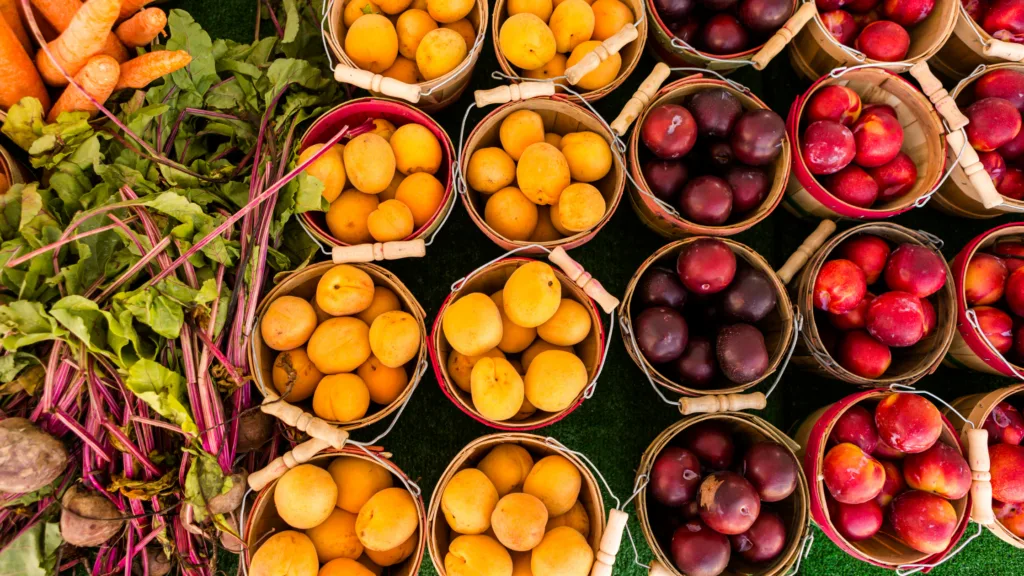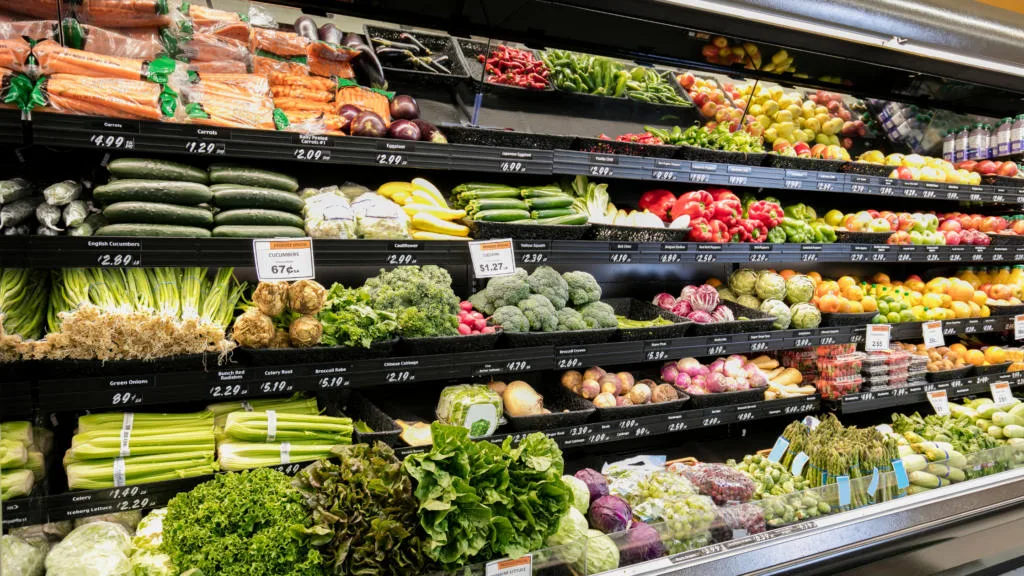I have always loved the idea of eating seasonal foods. It always seemed like a wholesome, back-to-basic approach to cooking. But as I got older, I realized there is more to seasonal eating than just wholesome meals.

If you’ve had your own garden and eaten the harvest, you were eating with the seasons. When I started my first garden I didn’t realize that eating seasonally was a thing. I thought it was all about enjoying fresh, delicious produce straight from the ground.
There are a ton of financial benefits as well. Eating with the seasons has significantly reduced my food expenses, and today, I’m sharing with you some reasons you may want to take a closer look at eating what’s in season.

What Exactly is Eating Seasonally?
Eating fruits and veggies in season is as simple as it sounds. And let me tell you, this approach can save you a pretty penny on your grocery bills.
Why? Because when a fruit or veggie is in season, it’s abundant. And when something’s abundant, it’s cheaper. Plus, it’s usually at its nutritional peak – so it’s a win-win!
One challenge of seasonal eating is that you’ve got to be flexible. Say goodbye to watermelon in the middle of winter (unless you live in California, you lucky ducks!). But hey, isn’t variety the spice of life?
Sure, you will see watermelons for sale in Western New York in the winter, but you will pay a lot for them, and chances are, they won’t be that tasty.

How To Tell What’s In Season
The hardest part of eating seasonally is knowing what’s in season.
It varies by region, but think strawberries and asparagus in spring, tomatoes and corn in the summer, squash and apples in the fall, and root veggies in winter. And if you’re not sure, just ask your friendly neighborhood farmer at your local market.
You can use this website to find your state and the foods that are in season in your area.
Once you’ve got your seasonal goodies, it’s all about storage. Apples can last for weeks in a cool, dark place. On the other hand, leafy greens are a bit more high maintenance and prefer the fridge.
And don’t be afraid to freeze extras! I promise my grandma’s apple pie tastes just as good frozen.

How Eating Seasonally Saves Money
Eating with the seasons saves transportation costs
The first and perhaps most obvious reason that I save on food expenses through seasonal eating is that out-of-season produce is expensive, and there’s a reason for that.
Produce that is out of season is either grown in heated greenhouses or shipped in from the other side of the world, both of which come at a high transportation cost.
By eating with the seasons, I know that my produce is grown locally, picked at the peak of its freshness, and comes to the market at a reasonable price.

Seasonal produce is more flavorful
One of the best things about seasonal eating is that the produce you buy is the freshest and most flavorful at that time of year.
Not only does this make your meals taste better, but it helps you save money since you don’t have to spend extra on spices or condiments to make up for the lack of flavor. In-season produce stands on its own.
Buying in bulk and freezing produce
When seasonal produce is abundant, I have no qualms about buying it in bulk, cleaning it, and freezing as much of it as possible; it’s cheaper and lasts longer.
With produce like corn, tomatoes, berries, and more, it’s easy to freeze, and then they work great later in smoothies, casseroles, and soups.
This process has turned out to be particularly useful when I buy a ton of produce during the peak of its season and then use it throughout the rest of the year.

Meal planning becomes more manageable
Seasonal eating not only helps me save money, but it also helps me meal plan more efficiently. I can decide on meal ideas that align with what is in season, from simple salads to stir-fries, and my planning consists of selecting what produce is fresh and abundant at the market.
This saves me time and waste and gives me higher-quality ingredients.
This cute printable meal planner will save you $100s times what you spend on it.
You learn to appreciate food more
One of the things I’ve realized from eating with the seasons is that I’ve come to appreciate and understand my food better.
As I cook and eat seasonally, I am more thankful for what is on my plate and the preparation and time that went into it. As you prepare seasonally, you will gain a newfound appreciation and respect for your food.
This is also a great lesson to teach your kids. My family looks forward to our gardens’ fresh berries, asparagus, and more. In a world where our kids are used to getting everything they want when they want, teaching them to eat seasonally is a life lesson. One they will thank you for in adulthood.
Eating with the seasons has a lot of benefits that can help with one’s food budget and promote self-reliance. Save money on produce, become more mindful of your eating, and get better quality ingredients.
It’s an easy and cost-effective way to eat healthy and delicious food while helping to support your local economy. The next time you’re grocery shopping, look at what’s currently in season and see for yourself – your wallet (and your taste buds) will thank you.
